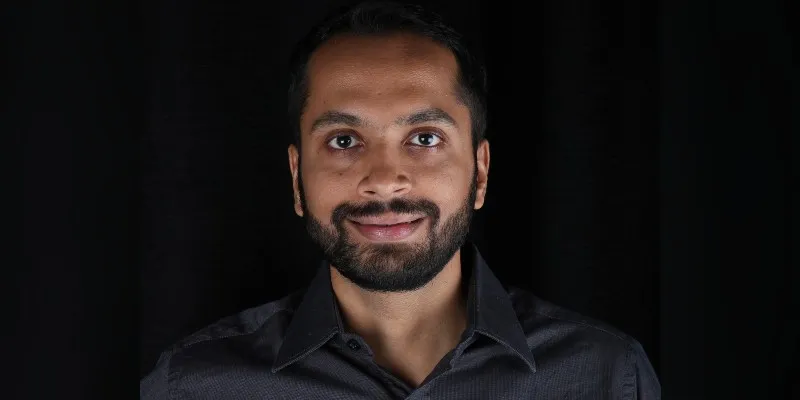[The Turning Point] How adopting a cloud-kitchen model helped Faasos transform into foodtech unicorn Rebel Foods
The Turning Point is a series of short articles that focus on the moment when an entrepreneur hits upon their winning idea. Today, we look at foodtech startup Rebel Foods, which entered the unicorn club this month.
, which entered the unicorn club following a $175 million Series F funding round earlier this month, began life as Faasos in 2004.
Started by IIM-Lucknow alumnus Jaydeep Barman and Kallol Banerjee, Faasos aimed to serve wraps and rolls with an Indian twist, inspired by the street food (rolls) available in their home city, Kolkata. The duo aimed to start an Indian food chain at a time when only a few US-based chains likes Domino’s and McDonald’s had been able to scale.
The company formally became Rebel Foods in 2010-11 but continued to run its QSR outlets of Faasos.
Raghav Joshi, Co-Founder and CEO India Business Unit, Rebel Foods, tells YourStory that the first major turning point was when the company decided to go delivery-only.
Raghav joined in 2011 after Sequoia's funding as a co-founder, with five more, Ankush Grover, Sagar Kochhar, Soumyadeep Barman, and Ankur Sharma, to scale the company.

Raghav Joshi, Co-Founder and CEO India Business Unit, Rebel Foods
What customers want
Starting out from Pune, Faasos started out slowly but gained in momentum and went on to raise $5 million from Sequoia Capital in 2011 itself. The company was growing well and had about 100 outlets by 2014.
Faasos always had a focus on tech. It was probably the first company in India to take orders online about a decade ago. It maintained a call centre, took orders on the web, and also had a dedicated app much ahead of others in the market.
Raghav says when the company started speaking to its customers in 2014, it realised that most customers had never seen a Faasos outlet, but were still ordering wraps or rolls.
“This is when we thought: why do we even need an outlet? Why are we paying high rent or a fixed cost for an outlet? Instead of that, why not move to some off-location, cook there, save on rent, and pass on that benefit to customers. So we decided to set up kitchens with a focus only on delivery,” says Raghav, adding that they learnt later that these were called cloud kitchens.
This was the first turning point, Raghav says. He adds that the second major turning point for the company was 2016, when it added a second food brand, Behrouz Biryani.

“When we had no signage, we thought why should we restrict to only one brand? Why not have multiple brands? This strategy was based on these two insights - that people associate brands with cuisines so rather than offering multi-cuisine under one brand, have multiple brands for specialised cuisine. The second: if you want customers to order frequently from you, you need multiple cuisines,” Raghav says.
These insights led Rebel Foods to go multi-brand, and it led to the second growth spurt for the company.
The Rebel Operating System
In recent years, there was a third turning point: the company became an ‘operating system’.
Apart from having its own food brands like Faasos, Behrouz Biryani, Ovenstory, Lunch Box etc, it started transitioning into a platform that offered brands it did not own. It got a delivery mandate for Wendy's in India apart from others like Biryani Blues, Slay Coffee, and more.
Raghav clarifies that this is different from food aggregation; it is more like an operating system where brands are integrated with Rebel Food and its infrastructure, safety, hygiene, quality, scale, kitchen, and so on.
As of today, Rebel has a dozen of its own brands and a total of 45 brands across the geographies.
With about 6,000 employees, Rebel Foods is on aggressive expansion drive and wants to grow as the Rebel Operating System.
Rebel OS, with full-stack technology, allows multiple brands to be launched and scaled up in a very short period of time. Through the Rebel Launcher, powered by Rebel OS, the company has launched over 25 brands in the last two-three years.
Rebel Foods is present in more than 60 cities in India, and plans to expand to 100 cities by next year. Outside India, Rebel is also present in Indonesia, United Arab Emirates, United Kingdom, Singapore, Malaysia, Thailand, Hong Kong, the Philippines, and Bangladesh. It aims to expand to 20+ international markets by March 2022.
Edited by Teja Lele


![[The Turning Point] How adopting a cloud-kitchen model helped Faasos transform into foodtech unicorn Rebel Foods](https://images.yourstory.com/cs/2/70651a302d6d11e9aa979329348d4c3e/CopyofImageTagsEditorialTeamMaster3-1635495899901.png?mode=crop&crop=faces&ar=2%3A1&format=auto&w=1920&q=75)

![[The Turning Point] From Foodiebay to IPO-bound Zomato, we take a look at how the foodtech unicorn tasted success](https://images.yourstory.com/cs/2/70651a302d6d11e9aa979329348d4c3e/Deepinder-Goyal-zomato-featured-image-1625829486116.jpg?fm=png&auto=format&h=100&w=100&crop=entropy&fit=crop)




